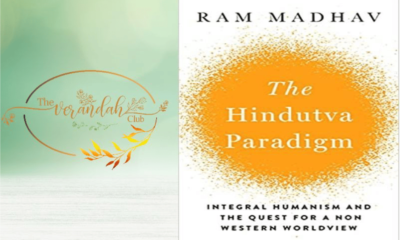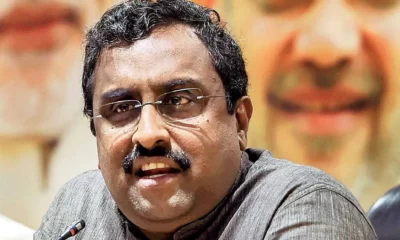
|
Getting your Trinity Audio player ready...
|
What is next for the state post abrogation of Article 370?
Articles 370 and 35A were axed because they were coming in the way of development, political empowerment and dignity of the people of Jammu and Kashmir. They were also acting as a barrier for total emotional integration of the people of Kashmir in the Indian Union. Our priority now would be to take development to the doorsteps of ordinary citizens of the state. Political empowerment by way of full implementation of the 73rd and 74th Amendment of our Constitution that extends administrative and financial powers to panchayats and extending political reservation for STs is also on agenda.
Providing a more dignified life to all sections like Kashmiri Pandits, refugees, migrant workers and others by way of undoing more than 150 laws made by the state legislature using Article 370, and extending more than 120 laws made by Parliament will also be on agenda.
In the BJP-PDP Agenda of Alliance, it was clearly stated that status quo would be maintained with regard to special status of J&K. What changed?
In the Agenda of Alliance, we clearly stated that the BJP’s position was the opposite of that of the PDP on Article 370. However, pending a decision by Parliament, which had the real authority, we decided to freeze the matter within the state. It never meant we gave up the demand. It was only strategic silence within the state.
You have stated time and again that Kashmiris are in a thinking mode over what has happened. What is your sense about how would things play out?
Having seen the situation in the Valley in the past, wherein minor provocations would lead to major flare-ups on the streets, I would certainly argue that the people of Kashmir have decided to pause and understand. Curfews or force deployments or even Internet blackouts are nothing new to the Valley. What is new is the very few instances of unrest.
I am sure with some more time passing, the mischief-makers in the political and separatist circles would lose their potential to foment any trouble. People of the Valley would soon get a chance to enjoy the benefits of the Modi government’s action.
The Abdullahs and Mehbooba Mufti, who represented mainstream politics, are under detention. How does the government intend to deal with them?
The so-called mainstream parties in the Valley have always had one foot in India and another in the separatist camp. Depending on the situation, the rhetoric would change its decibels. Upholding the national flag is the duty of every political party and leader in the country. It should not be seen as charity or a trade-off. We can’t overlook the fact that separatism and terrorism in the Valley were also the result of certain policies and actions of the leaders of these so-called mainstream parties only.
Have their careers finished forever? What would be the parameters for their release?
I am sure the administration would let everybody off as soon as the situation becomes conducive for normal political activity. However, the tragedy of Valley politics is that when we talk of the mainstream, we can’t go beyond three to four names. Let those leaders resume their political activity as and when things become normal. But the need of the hour is to encourage rise of grassroots leadership outside the three-four families. Recent panchayat and local bodies elections have thrown up good leaders. Such new leaders should rise in politics. That also will be our effort.
With special status gone, what message has been delivered to Pakistan?
Most importantly, we told the Pakistanis, the world and also our own countrymen that we should start looking at Jammu and Kashmir not from the Pakistani lens, but from the lens of Indian Parliament and sovereignty. Pakistan has no locus standi. In 1994, under the regime of Congress, Parliament had unanimously passed a resolution stating that the only outstanding issue between India and Pakistan to ever talk about would be the status of Pakistan-occupied Kashmir (PoK). We stand by that resolution.
How much has BJP gained politically by doing what it did?
The action against Article 370 was intended to strengthen national unity by completing the unfinished agenda of Sardar Patel. It was intended to take the fruits of development at the doorsteps of ordinary Kashmiris. As far as the party is concerned, we have realised our 70-year-old dream. Every party worker is happy about it.
How is J&K different from Nagaland where the talks for a separate Constitution and flag form the core of the negotiations?
Talks between the Naga groups and representatives of the Union Government are at a critical stage. I don’t want to predict the outcome. Article 370 is a totally different affair.
How would the Modi government allay fears not only in the Valley, but also in Jammu and Ladakh that they would be dispossessed of their property rights?
Most of the fears were artificially created by the political establishment in the state for own vested political interests. The Union government will take all necessary steps to address and allay the concerns of the people of J&K.
Does the BJP need to set its own house in order in the state?
Under Modi, the BJP has emerged as the party of the present and the future. So many well-meaning people who have the good of the country at heart are coming forward to join our party. Together we will build a new India. We have a good leadership in the state which has struggled for decades to build the party at the grassroots. They had their first brush with governance in so many decades during the PDP-BJP regime. They have learnt the prospects and pitfalls of governance. If anything, they have emerged as better leaders.
There is talk that elections to the Assembly would be held in 2021.
Deciding about the election schedule is the prerogative of the EC. Our party has always asked for early elections. The new UT Bill stipulates that a delimitation exercise be undertaken for the new legislature. We are looking forward to the announcement of that process also.
Foreign media reports are very critical.
Sections of international media are presenting an exaggerated picture of the ground situation in the Valley. We are tackling this misinformation through our diplomatic and other channels.
(The interview was originally published in The Tribune on September 3, 2019)



